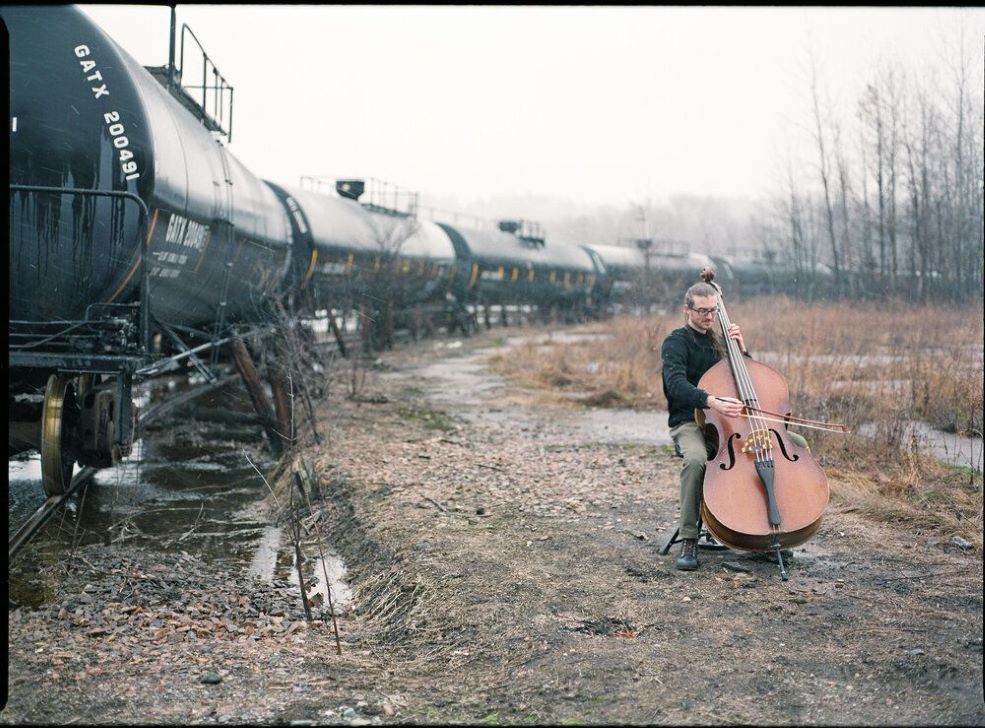The wide-open landscapes of North Dakota are not necessarily the landscapes that inspire avant-garde free improvisation. For double bassist Gahlord Dewald, that vast emptiness represents the canvas on which he has based his artistic career.
“Being able to create interesting sounds was part of the game from the get-go from when I was in like seventh or eighth grade,” recounts Dewald of his formative years in Grand Forks where he played in the school orchestra and jazz band as well as playing in bands. “In Grand Forks, it’s like, ‘Well, whatever – kids are making a racket!’”
No matter where Dewald makes his musical (or racket) home from the heart of the Red River Valley to his current home base in Hawaii to performing on the faculty with the Banff Centre for Arts and Creativity, the key for creating music for Dewald is the people. “A big part of what I do ends up focusing on community of practice, which is sort of a nerdy way of thinking about it, but who are the actual people that I’m working with as collaborators,” he says. “Especially as an improviser, instead of having notation on the page, the notation is kind of embodied in us.”
Part of Dewald’s explorations at the Banff Centre have been ongoing experiments in free improvisation with some of the best emerging chamber musicians in the world. Despite having years of technical training and ensemble experience, each of them was excited to be a part of the experimentation from the outset.
“Before I started, I kind of wanted to get a gauge of like, where are these folks at,” shares Dewald about his introduction to the participants of the Interplay program. “I said, ‘How many of you have done some experimental music or free improv or any of that?’ And everybody raised their hands. I’ve never seen it like that before. Five years ago, it would have been like one person timidly raising their hand.”
Dewald observes that the surge in enthusiasm for improvisation comes from a variety of factors: more accessible contemporary compositions that have improvisatory elements, new music ensembles being a part of the post-secondary experience, and innovations that became the norm during the height of the public health lockdowns. The most important thing that Dewald instills in those who engage in free improvisation is a wholehearted willingness to participate.
“One thing that I do and that I’ve encouraged all of the participants at Banff here for this session is to always bring your full self to the table,” Dewald says, noting that developing this skill in a free improvisational setting is beneficial to the ensemble-playing that many of these performers will participate in. “I try to remind people you’ve spent a lot of time learning orchestral excerpts. You’ve spent a lot of time learning little pieces of music. You can bring those into your free improv in the same way that a jazz musician might quote another piece or a hip-hop artist might sample a song with a specific meaning to change the context of a work. You bring your whole self.”
